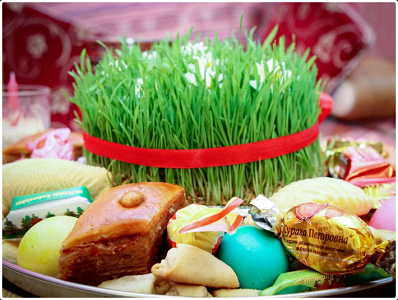Celebration of Novruz
By Aliheydar_Rzayev Tuesday, 20 March 2018 5:17 PM

The United Nations’ (UN) International Day of Novruz celebrates the start of the Persian spring festival March 21 ever year. It occurs on or around the time of the March equinox. About 300 million people worldwide celebrate Novruz, with traditions and rituals particularly strong in the Caspian Sea and Black Sea regions, the Caucasus, Central and South Asia, Balkans, Middle East. Events may include folk dance performances, special concerts, and tree planting ceremonies.
Novruz is an ancestral festivity marking the first day of spring and the renewal of nature. It was proclaimed as an official UN observance because it promotes peace and solidarity, particularly in families. The day also focuses reconciliation and neighborliness, contributing to cultural diversity and friendship among peoples and different communities.
This is an ancient holiday, which can be traced back 5,000 years to the Sumerians and the Babylonians civilisations. Novruz begins on either 20 March or 21 March, on the spring equinox, when the days and nights are equal length, with days then becoming longer signifying the arrival of warmer weather.
The build up to Novruz begins a month before the festival. Each of the four Tuesdays falling before Novruz is dedicated to a different element. First is Water Tuesday, where water renews nature. Next is Fire Tuesday which honours fire as a method rebirth. Then it is Earth Tuesday marking the revival of the earth. Finally it is Wind Tuesday when the wind opens the buds and marks the arrival of Spring.
Fire worship forms an integral part of the celebrations with fires being lit on the four Tuesdays in the run up to Novruz. On the last Tuesday, everyone has to jump over the fire as an act of purification.
Like a lot of spring festivals, this idea of purification and starting again is a key. Indeed, before Novruz, activities based on renewal like spring cleaning, planting trees, make new clothes and painting eggs are popular.
On the day before Novruz the whole family will gather round the table to enjoy traditional dishes. The table will be decorated by a khoncha, a large silver or copper tray with Samani (wheat) placed in the centre and candles and painted eggs representing the number of family members around it. The feast will consist of at least seven dishes.




























Add new comment